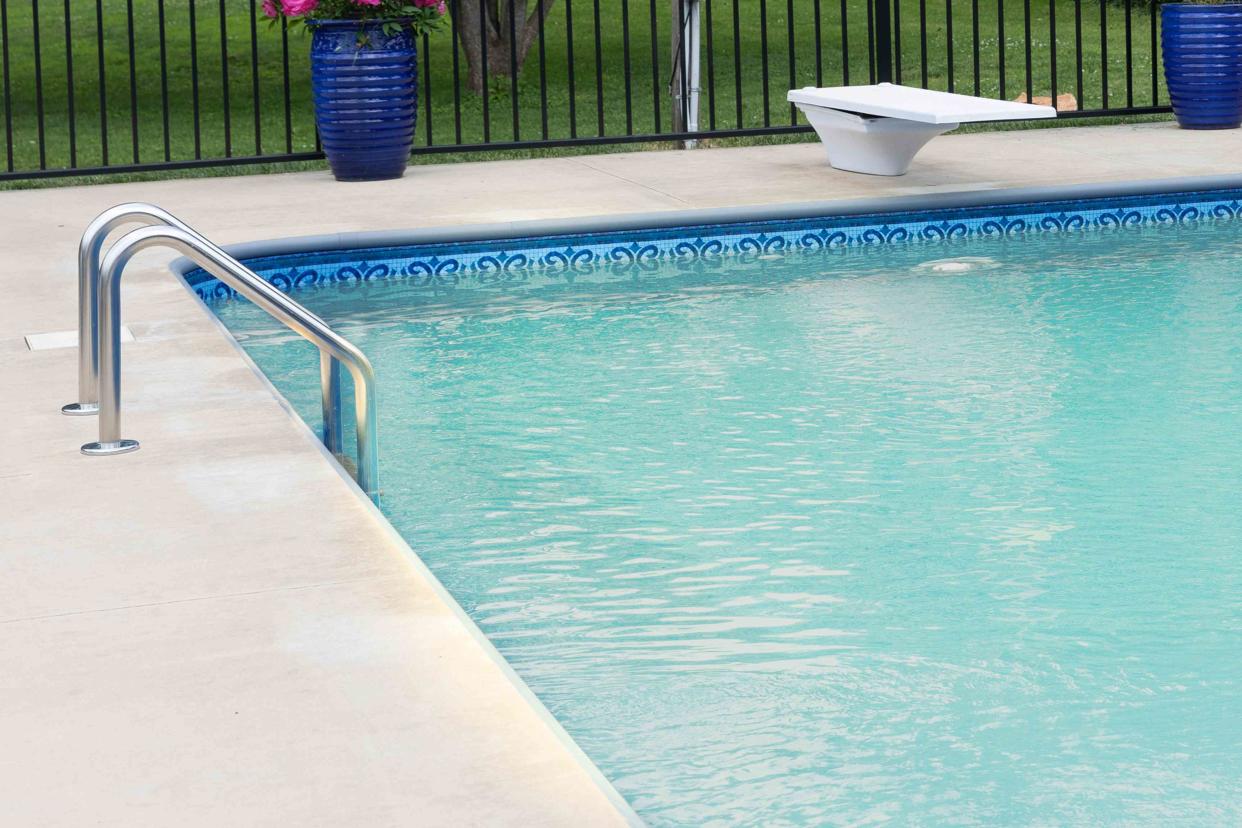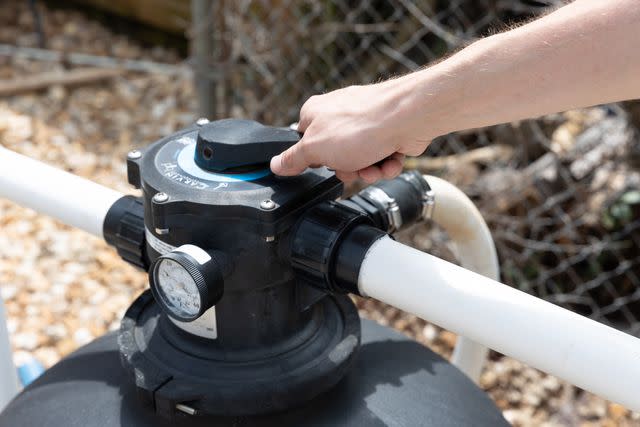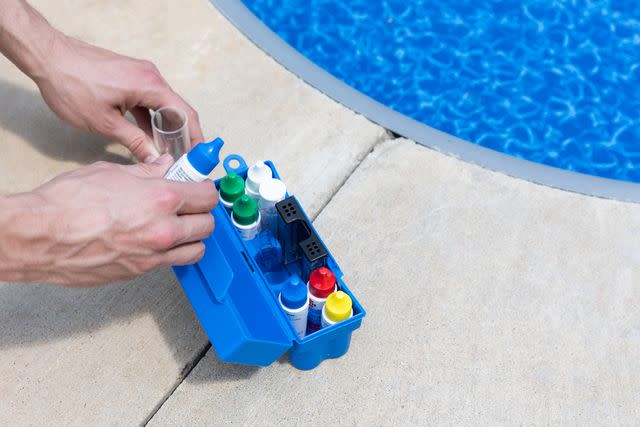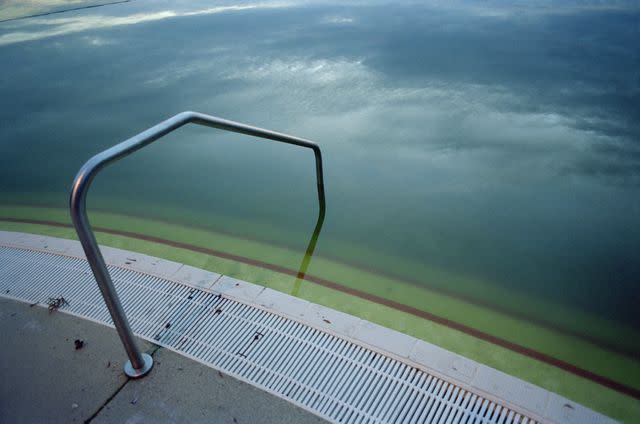3 Reasons Your Pool Is Cloudy, and How to Fix It

The Spruce / Tessa Cooper
Fact checked by Sarah ScottFact checked by Sarah Scott
No matter what type of pool you have, where it is, or what the season is, a pool can get cloudy. There are a few possible causes for murky water, with the most common causes of a cloudy pool being a low runtime, chemical imbalance, and algae. Each of these causes have their own methods for diagnosis and treatment but generally should clear up in a few days with proper attention.
Here's are the three most common causes and how to treat each of these problems. Your pool will be clear again in no time.
Low Runtime

The Spruce / Tessa Cooper
A pool that is not run for at least 8 hours a day can get cloudy water, especially if the pool is in regular use. A pool is fighting off bacteria 24 hours a day, 7 days a week, and while the chemicals do the majority of the work, a properly filtered circulating pool helps to ensure that the water and chemicals are mixing properly.
In addition to mixing up the water, a running pool also sucks up debris, such as leaves and twigs, into the skimmer. Chlorine goes to waste when it has to spend all its time working on debris; a running pool gets the debris into the skimmer or filter basket and out of the way so the chlorine can do its job.
The fix for this cause of cloudy water is fairly obvious: run your pool more often.
If your pool is cloudy because of low runtime, it is very important to backwash your pool at least once a week to make the most of the time the filter system is on.
Chemical Imbalance

The Spruce / Tessa Cooper
One of the more common reasons a pool would be cloudy is a low chlorine level or other chemical imbalance. If there is not enough chlorine present, bacteria is able grow and potentially turn the pool green or cloudy. The same thing can happen when there’s too much alkalinity or too high a pH level.
Any of these conditions can be determined very easy by testing the pool water. If the chlorine is low, simply add another tablet or some shock to the pool and let run for 2 to 3 days. If the pH is high or low you can adjust accordingly.
For all other chemicals, running the pool will take care of the cloudiness over time. Be sure to backwash the filter to make sure that the filter is operating at optimal pressure; this will ensure that your pool will be clear as soon as possible.
Algae

Brian Caissie / Getty Images
Algae can cause cloudy pool water. Algae comes in many types and colors, not just green.
The first step to treating algae (assuming the chlorine level is adequate) is to identify what color it is. Different colors of algae have corresponding algaecides, which can be added along with a clarifier (if desired) to the pool to clear the water. A clarifier isn’t necessary, but it will speed up the time it will take for the pool to clear up.
After you’ve added the chemicals, brush down the pool, including the water level, disturb the algae and remove scum. When left undisturbed, algae can stain your pool surface.
Let the pool run for at least 2 to 3 days and backwash your filter at least once a day until the water has cleared.
The unfortunate thing about algae is that unless it is completely eradicated, it will keep coming back. So if your water does not clear up after a week, you’ll need to take a small container of cloudy pool water to your local pool store. An analysis of the water will determine what kind of algaecide you need.
Frequently Asked Questions
Will Shock fix a cloudy pool?
Shock could clear a cloudy pool if the cause of the cloudiness is a low level of chlorine. Always test the cloudy water before adding shock to be sure that low chlorine really is the cause.
Can too much chlorine make pool water cloudy?
Yes, too much chlorine can unbalance the chemistry of a pool and make the water cloudy. Testing the water will tell you if too much chlorine is clouding the pool.
Is it safe to swim in a cloudy pool?
Swimming in a cloudy pool would mean swimming in algae or chemically imbalanced pool water, both of which aren’t unsafe per se but are certainly not ideal. It’s better to be cautious; test the water and treat the problem before swimming.
Read the original article on The Spruce.

